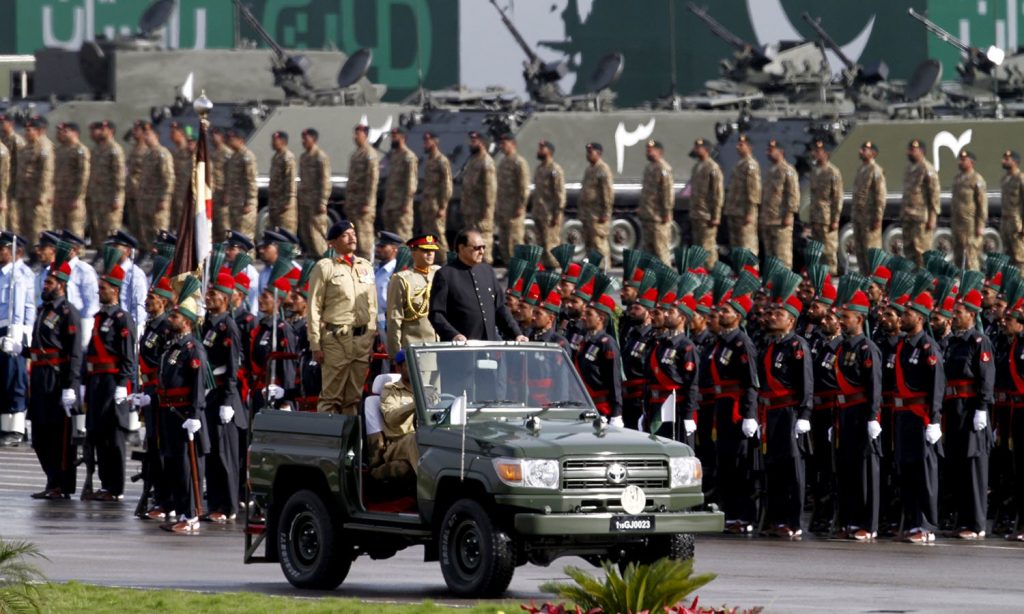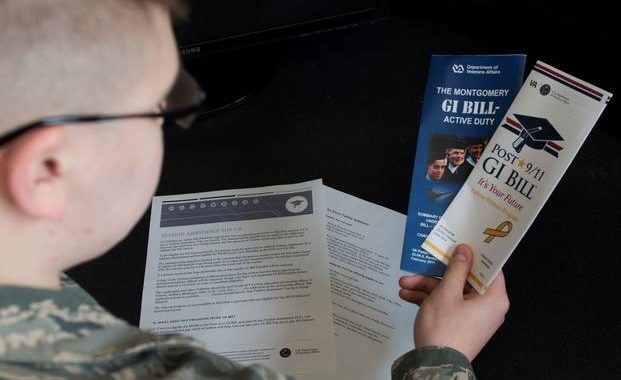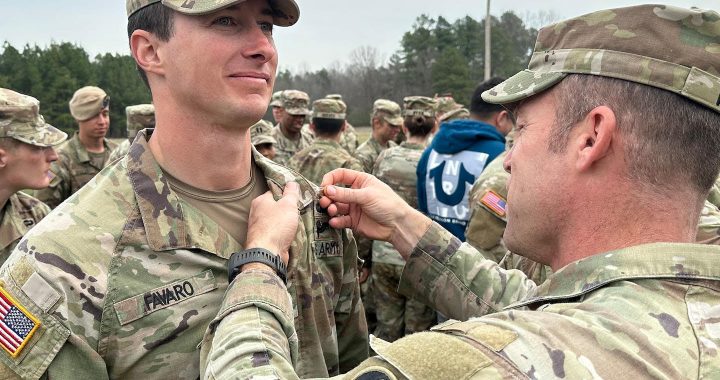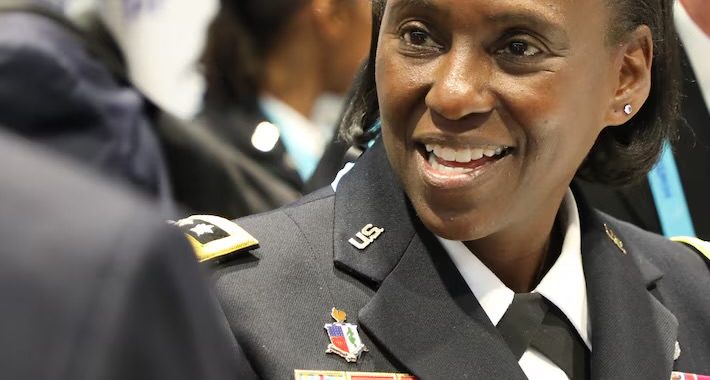Pakistan Uses Military Spy Technology to Track Covid-19 Cases

Pakistan's President Mamnoon Hussain, center on a military vehicle, reviews a military parade to mark Pakistan's Republic Day in Islamabad, Pakistan, Wednesday, March 23, 2016. Pakistan's President praised his country's security forces and pledged to continue the fight against terrorism, speaking at a rally during a national holiday. During the rally, attended by several thousand people, Pakistan displayed nuclear-capable weapons, tanks, jets, drones and other weapons systems. (AP Photo/Anjum Naveed)
Tracking technology from Pakistan’s feared military spy agency is being used to trace Covid-19 cases as the country tries to switch from a broad lockdown to targeted restrictions allowing more of the economy to resume.
Assistance includes the use of telecommunications and intelligence, military sources said. One Western official said the military had well developed telecoms spying systems, potentially allowing it to detect when someone moved out of a defined quarantine area.
“The ISI has given us a great system for track and trace,” the prime minister, Imran Khan, said last week. “It was originally used against terrorism, but now it is has come in useful against coronavirus.”
Troops will also be used to man cordons and checkpoints around quarantined virus hotspots if necessary. Army medics have been deployed to aid the Covid-19 response and the military’s five testing laboratories are working with the civilian National Institute of Health to increase testing capacity.
Under intense pressure to resume trading and commerce, the government is attempting to switch to a “smart lockdown” which would only restrict the most infectious areas.
“A smart lockdown, and testing, tracing and quarantining will drive our efforts against Covid-19. We will have a targeted lockdown only for virus hotspots and clusters,” said Maj Gen Babar Iftikhar, spokesman for the military’s information wing.
Pakistan’s military is widely considered the most dominant institution in Pakistan and has governed the nation for much of its history. Its military spy agency has a formidable domestic security role, as well as being accused of a history of supporting militants to provide foreign policy muscle in Kashmir and Afghanistan.
The army’s increasing role in the response to the Covid-19 pandemic has led to speculation Mr Khan has been sidelined after appearing to hesitate in the early days of the outbreak.
Mr Khan repeatedly said he was opposed to a lockdown because of the toll it would wreak on the nation’s poor. Individual provinces then moved on their own to impose wide-ranging restrictions and the army was deployed in support of civil powers.




